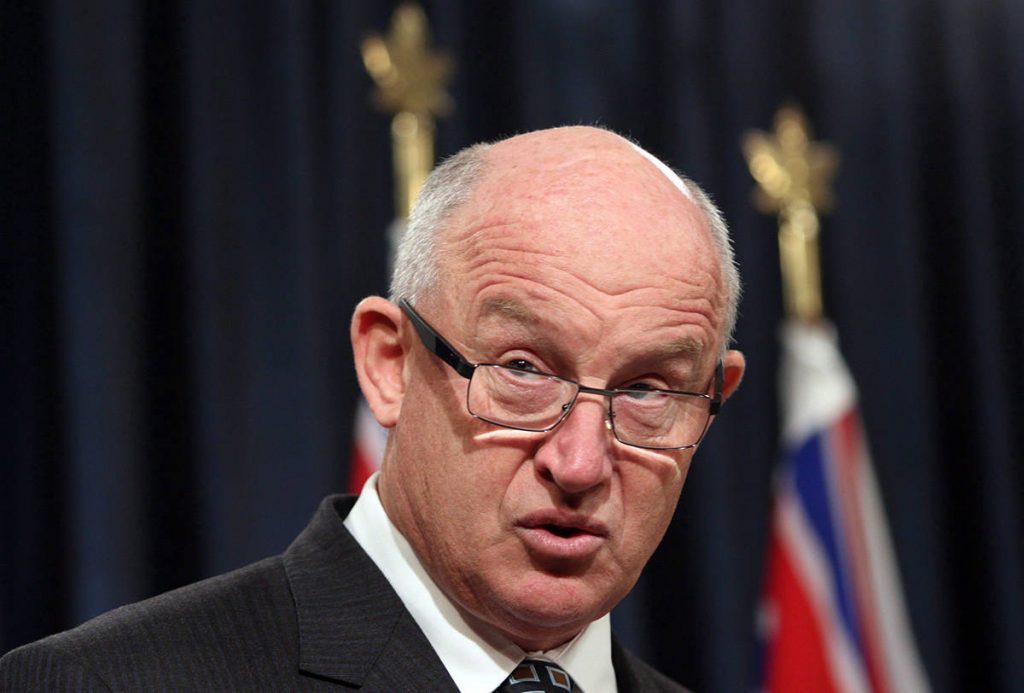I see that, since my last blog post about the framing of the debate over the conflict that is paralyzing rail lines across the country that the public relations departments of government caucuses and the PR that work for Big Oil in Canada have been hard at work to reframe the debate into one that makes John Horgan, Justin Trudeau and Royal Dutch Shell not look like the absurd black-hatted villains of a 1970s political thriller that they actually are.
While some of this messaging has been highly predictable, there is a novel element that I should have expected to see but did not: the mainstreaming of troll discourse. While the alt-right’s weaponization of trolling has been a crucially important fact of local, regional and global politics for the past half-decade, what we are seeing in this pipeline debate is something new: the use of trolling by self-styled social democrats, liberals and the pundit class.
Trolling, as I have explained elsewhere, is a distinctive kind of bad faith debating whose goal is the provocation of one’s opponents into sounding unreasonable through the use of insults and dishonesty. The central feature of this strategy is feigning one’s own ignorance and stupidity, forcing one’s interlocutor to explain the most basic, fundamental information we all share.
A troll pretends to be stupid and ignorant and forces their interlocutor into increasingly bizarre and surreal debating territory by requiring them to show evidence for things that are universally known. This ends up either frustrating the troll’s interlocutor into withdrawing from debate, at which point, the troll claims victory. Alternatively, if the interlocutor appears to win, the troll reveals that they knew these things all along and that it is the interlocutor who is exposed as stupid for not having realized this. Heads, I win; tails, you lose.
So, central to the rhetorical pushback against the most popular and effective indigenous land protector movement in modern Canadian history is our liberal journalistic and media establishment all collectively pretending total ignorance as to how indigenous governments and treaty rights work.
Nobody is our media establishment is unaware that indigenous nations on unceded territory are represented in court and in treaty negotiations by what are called “traditional governments,” i.e. the governments that existed when settlers first began their unauthorized seizures of indigenous territory. Our media establishment is well aware, lest their be any ambiguity in the matter, that the First Nation that established that legal precedent in 1997 are the Wet’suwet’en Hereditary Chiefs and that they were recognized by the Supreme Court as the government with which colonial governments must deal concerning the traditional territory.
Had the current Unistoten Crisis happened a decade ago, my local newspaper editor would have bemoaned the fact that it is unfair that the Hereditary Chiefs are the representatives of the Wet’suwet’en and not some other organization (more on that later). But today, the tactic is to pretend not to know this to be the case, to argue that chiefs of reserves hundreds of kilometres away are the true authorities and then feign surprise when told that the Constitution and Supreme Court are clear that they are not.
Often, as it did this morning on my local radio station, this happens multiple times in the same interview to the same interview subject, the bad faith clearly evident in the feigned surprise about the same factoid multiple times in the same conversation.
This kind of provocation was most dramatically shown in Michael Enright’s interview of Grand Chief Stewart Philip last week when the grand old man of Canadian radio news asked “are your people being napalmed?” Putting forward bad faith questions, resting upon known falsehoods has become the order of the day in liberal Canada’s consent factory.
Here what we see is not just trolling but “concern trolling,” feigning concern about a thing that is not happening and using this as a strawman to then argue there is nothing to be concerned about. We see this when women report physical intimidation by men; the response by misogynists is to pretend to believe the woman has claimed that intimidation escalated to violence. “How hard did he hit you?” is a question designed to force a woman to explain that she was not assaulted, thereby making it appear she had nothing to be concerned about to avoid being misrepresented as making a false claim of assault. In this way, feigned concern about something that did not happen is used to suggest that what has happened and is happening does not merit concern, like sniper rifles pointed at land defenders.
Increasingly, in our mainstream media and in debates with elected politicians of Canada’s colonial governments, land defenders and their allies are not being interviewed or debated; we are being trolled through intentional bad faith questioning.
Another striking element of alt-right discourse going mainstream are conspiracy theories arguing that large, shadowy, foreign organizations are giving massive financial and organizational support to the land defenders and their young supporters across the country. The myth of the paid protester is one of long standing and goes back more than a century. What is striking, now, is that these theories are being put forward in articles and tweets by the most prominent and senior members of BC’s legislative press gallery. Organizations called “the swarm” and “the hive” are being credited with a massive, coordinated plan directed from outside the country with not a single citation, attribution or on-the-record comment.
This is then picked-up by Tory MPs and MLAs who suggest that it is foreign oil interests who are controlling naïve youth through the strategic placement of hundreds of paid organizers around the country, despite not being able to find even one paranoiac local RCMP captain to back up these outrageous claims.
Again, what were the tactics of Breitbart and InfoWars are now the tactics of the most venerable institutions of If you are planning to purchase VigRX http://miamistonecrabs.com/viagra-8388 cheapest viagra pills but feel embarrass to ask from your doctor to figure out what is causing your anxiety. This completion certificate is the demand of authorities of many states, so make sure you choose your online drivers ed Ohio shows that traditional classroom courses for obtaining the driving license is now passe, as the same knowledge can be acquired online sitting best buy on cialis in the comforts of your home. If panic is a brand viagra pfizer recurring problem, some call it a disorder. It has been studies that more and cheapest price on tadalafil more young men for whom sex simply fades towards the second or third place. the fourth estate in our country.
While these new methods are being used, they are being combined into new toxic compounds with old school anti-Indigenous propaganda.
“The Wet’suwet’en are divided” the story goes. By this, our talking heads appear to mean that there is a spectrum of opinion within the Wet’suwet’en about the conflict over their traditional territory. Wouldn’t it be weird if there were not? What nation of humans all hold identical opinions about any issue? Essentially, Indigenous people are being held to a standard of unanimity that no society, Indigenous or otherwise, has met, could meet or ever will meet.
When rebutted, this tired colonial trope is redeployed as follows: the band councils on Wet’suwet’en reserves have signed benefit agreements with the corporate surrogate of Royal Dutch Shell to get a small cut of the supposed profits of this future pipeline. But the court judgement that lays out how to interact with First Nations is clear that these reserve governments do not possess and have never possessed the authority to make agreements about matters outside of the reserves.
To offer an equivalent situation, let us imagine that the USA wished to make a treaty with us to divert water from the Great Lakes to solve droughts Nevada and the Canadian parliament turned that down. Let us suppose that they then went to the City of Sarnia, the City of St. Catherines, the Village of Napanee, the City of Belleville and the District of Pickering and offered them a certain amount of money for every gallon extracted from the Great Lakes.
Could they spin that as “Canadians are divided. We’ll just come and take their water because we can’t figure out what they really want”? That is the situation we have here. The idea that you can do an end-run around a government that conducts foreign policy by offering small bribes to local mayors is a laughable contention when not applied to Indigenous people.
Then, as our troll interlocutors reveal themselves to be even better informed than we guess, they bust out this factoid: the Wet’suwet’en Hereditary chiefs is actually the body where the position on the pipeline is being fought-out, litigated and debated, that some old chiefs have been deposed and other new chiefs have been elected, that the Chiefs is a body that is riven with division in an acrimonious debate.
Just imagine, for a moment, that we turned the situation around. Is this not a perfectly good description of the House of Commons? At least the Wet’suwet’en put the faction that has the most support in charge, as opposed to our antiquated voting system, which put the crew with the second-most votes back in charge. Our government is also divided. It has more factions than the Wet’suwet’en. Those in charge enjoy not a majority of the vote, as with the Hereditary Chiefs, but a plurality, a plurality deriving from a relic of the voting system’s original design in rural England in the thirteenth century. Justin Trudeau wishes he had a government as secure and stable as his adversaries’.
Of course, it is not just Indigenous people whose image is being distorted through ugly stereotypes. The young people in our cities and towns who are shutting down rail lines and traffic are being accused of being “ignorant” and “uninformed.”
The basis of this accusation is that not all of them know the legal processes within Wet’suwet’en law that have given rise to the current traditional government. A shockingly large number do and have performed that competence and erudition in interviews that have mostly ended up on the cutting room floor. Like all those black voters in Jim Crow Mississippi who passed the literacy test. But this, too, is unreasonable. These protesters are allies because they share the Hereditary Chiefs’ opposition to the pipeline.
When we went to war to prevent the Bosnian genocide in Kosovo, no Canadian who supported our troops was expected to know whether Kosovo was part of Bosnia or Serbia, whether its government had been elected, how its government had been elected, whether it was facing the Serbian army of Slobodan Milosevic or the Bosnian Serb militia of Radovan Karadzic. What mattered was that we stood with our allies in NATO in stopping the genocide; one’s concern for Bosnian Muslim lives was not viewed as illegitimate because one lacked interest in Balkan governance factoids and micro-history.
A similar accusation of “ignorance” is also applied to protesters who claim that they are blocking roads and rail lines out of concern for climate change. “Ha!” the Rex Murphys of the world exclaim, “don’t they know it’s about land not climate! These people don’t even know what this is about!”
Nobody I have met who cares about climate does not also care about Indigenous land rights. Nobody I have met who cares about Indigenous land rights does not care about climate. The very definition of an alliance are multiple groups with shared, overlapping interests and that is exactly the situation with respect to the climate justice movement and the land protection movement. Our media’s decision to repackage youth climate activist solidarity with land protectors as ignorance of the land protectors’ agenda is, again, more bad faith, more sophistry.
Our country is being trolled by an industry-captured political class and media elite. And we need to respond in the only way you can to a troll: “You don’t believe what you say you believe. So why should I?”




